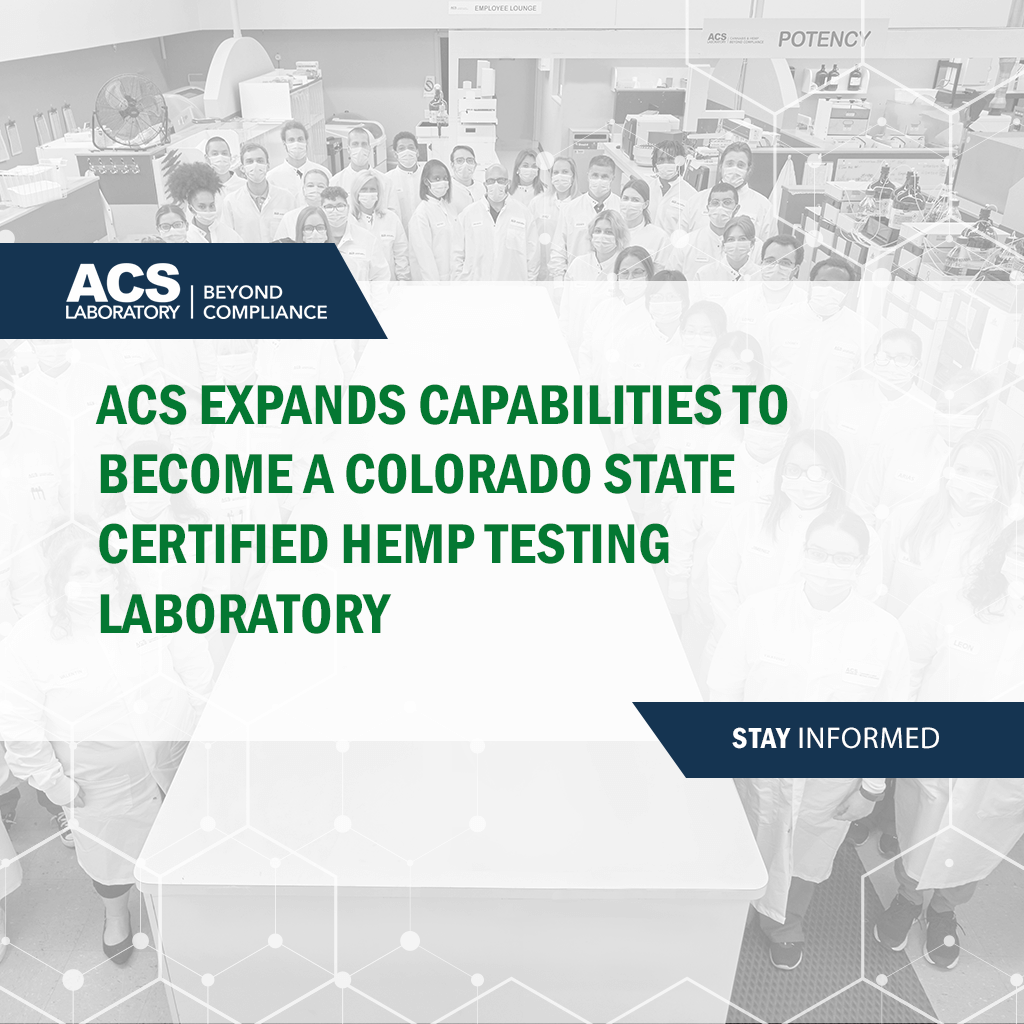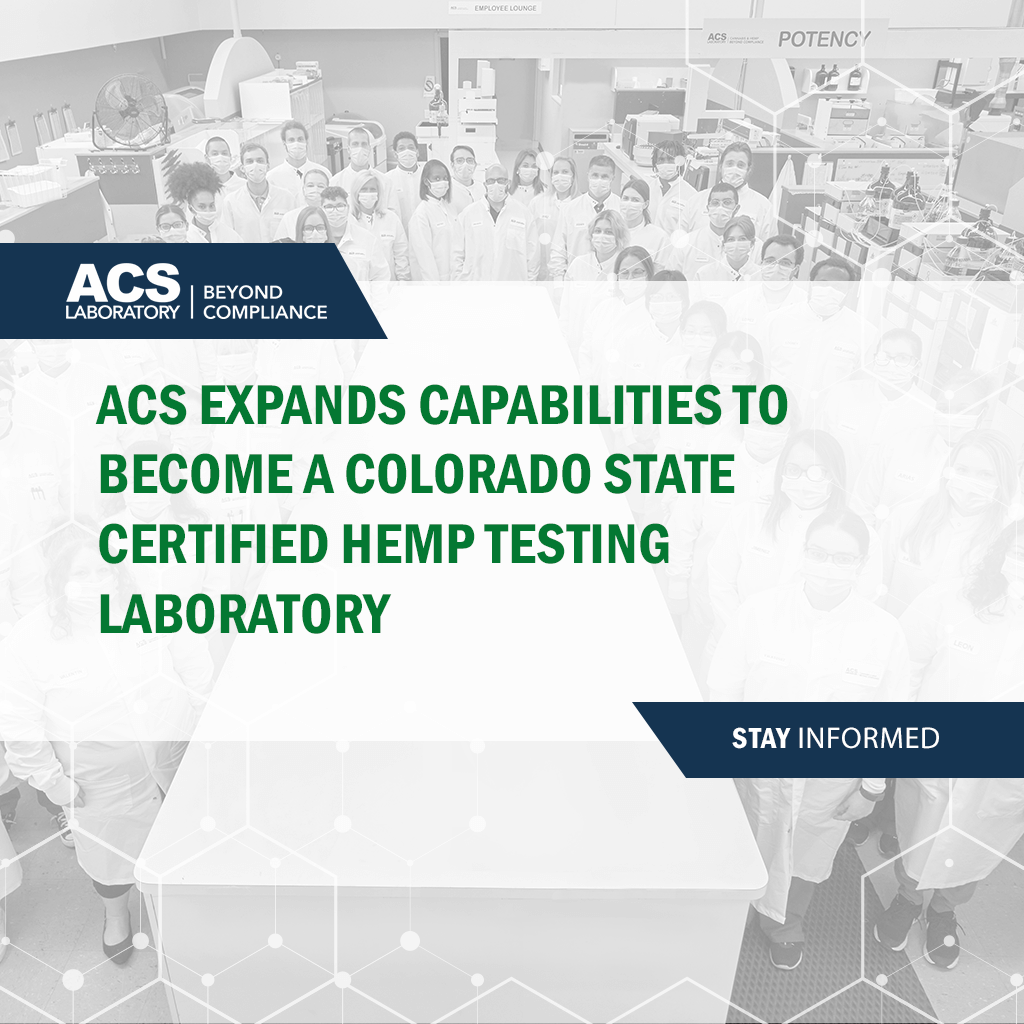5 Key Reasons Why Cannabis Brands Need Shelf Life and Stability Testing
5 Key Reasons Why Cannabis Brands Need Shelf Life and Stability Testing
- What is a cannabis shelf-life test?
- What is a shelf stability test, and how does it differ from shelf life?
- Real-Time vs. Accelerated Testing
- Five key reasons why cannabis brands must test for shelf life and shelf stability
- Importance of Shelf Life & Stability Testing for Cannabis Beverages
- Edibles Stability Testing
- Bottom Line
Scientifically reviewed by Eric Steigelman. Partner & CEO, Seamless Operations Management
All perishable goods, including cannabis and hemp, have a finite lifespan. However, brands can learn to preserve beverages, edibles, and extracts longer by gathering data from shelf life and stability testing. Real-time and accelerated tests inform proper storage methods and environmental degradation risks so brands can maximize long-term quality and consistency.
Shelf life and stability tests aren’t FDA-required for hemp and cannabis formulas. However, they’re essential for ensuring product safety, efficacy, and quality over time.
What is a cannabis shelf-life test?
A shelf-life test is a process used to determine how many days an unopened cannabis product remains safe to use, effective, and of acceptable quality under recommended storage conditions.
It involves evaluating the product over a set period to identify any changes in its characteristics, such as physical, chemical, microbiological, and sensory properties. For perishable goods, like edibles and beverages, shelf-life testing establishes expiration dates and provides consumers with reliable information on product durability.
This testing also helps manufacturers understand how time and environmental factors like temperature, oxygen, humidity, and UV light exposure affect their products, enabling them to optimize packaging and storage conditions.
ACS Laboratory’s shelf life tests analyze product durability for three-, six-, and twelve-month periods, determining whether they retain:
- Color
- Odor
- Appearance
- pH level (liquids only)
- Water activity
- Potency
- Terpenes
- Microbiology
- Mycotoxins
- Heavy metals (when stored in glass)
What is a shelf stability test, and how does it differ from shelf life?
Shelf life and stability testing are related but not exactly the same. Unlike shelf life testing, which predicts a product's overall lifespan, stability tests focus on its resilience to changes after opening or during storage.
Stability studies are essential for formulas with unstable ingredients or high moisture content, like edibles, oils, and nanoemulsion beverages, because these products are more susceptible to microbial growth, chemical degradation, and physical changes. Unlike hemp flower, which has a relatively stable matrix, the complexity and variability in the composition of edibles, oils, and beverages require thorough analysis to prevent spoilage, ensure uniformity of dosage, and maintain safety throughout the product's intended shelf life.
ACS Laboratory conducts stability tests for cannabis products at three, six, or twelve months. These tests report on physical and chemical characteristics of the samples that affect safety and potency, including
- Cannabinoid and terpene content
- Water activity
- pH levels (liquids only)
- Odor
- Microbiology
Real-Time vs. Accelerated Testing
Reputable third-party laboratories like ACS offer accelerated and real-time shelf-life and stability testing to suit various research & development needs.
Real-Time
Real-time shelf life and stability testing assess how long a product maintains its quality under recommended conditions, monitoring products until they degrade below quality specifications.
- Process: Involves storing the product under normal environmental conditions for its expected shelf life duration.
- Time Frame: This can take months or years, depending on the product's anticipated lifespan.
- Purpose: To observe the product's quality and stability throughout its actual shelf life.
- Application: Provides the most accurate and realistic data on how long a product will maintain its safety, efficacy, and quality.
- Limitation: The main drawback is the time required to obtain results, which can delay product launches and increase costs.
Accelerated
Accelerated shelf life and stability testing predict the product's lifespan by simulating advanced aging processes.
- Process: Exposes the product to elevated stress levels, such as increased temperatures, humidity, and light, to speed up the aging process.
- Time Frame: Significantly shorter than real-time testing, often completed in weeks or months.
- Purpose: To predict the product's shelf life more quickly by simulating the effects of aging.
- Application: Useful for predicting the shelf life of products in early development stages or when time constraints exist.
- Limitation: It may not accurately reflect real-world conditions, and the extrapolation to actual shelf life can sometimes be imprecise due to the accelerated conditions not perfectly mirroring natural degradation processes.
Both methods are valuable for assessing product stability and shelf life. The choice between them depends on specific needs, such as the type of product, regulatory requirements, and time constraints. Often, brands harness both methods to gain a comprehensive understanding and accurate prediction of durability.
Five key reasons why cannabis brands must test for shelf life and shelf stability
1. Consumer safety
Consumer safety is a critical concern for cannabis brands, primarily because compromised products can pose significant health risks. Shelf life and stability testing are vital in ensuring that products remain safe for consumption from when they are produced until they reach the consumer.
These tests help identify potential storage issues such as water content, which can lead to mold or bacteria contamination and spoilage; degradation of active compounds, which can alter the product's effectiveness and safety profile; and the presence of toxins or harmful by-products that may develop over time.
2. Cannabinoid preservation
Cannabinoids like CBD, THC, and CBG can lose their potency immediately due to processing conditions or over time. Some even transform into other compounds under certain storage conditions. For example, THC can become CBN when exposed to oxygen or UV light. CBD can even convert into Delta 8 or Delta 9 in acidic environments. These mutations can radically alter the product’s cannabinoid profile, psychoactive effects, and customer experience.
Added ingredients can further contribute to unwanted cannabinoid changes. For example, chocolate edibles contain fats, sugars, and cocoa, which can:
- Accelerate degradation through chemical reactions
- Alter the bioavailability of cannabinoids due to fat content
- Potentially interact with cannabinoids to affect their stability and efficacy.
Through stability testing, manufacturers and brands can learn how and when cannabinoid degradations occur. With that information, they can improve internal storage and packaging methods. Additionally, they can market products with accurate best-by-dates and storage recommendations, including light and temperature guidance.
3. Terpene preservation
Terpenes, the aromatic compounds found in cannabis, are responsible for the plant's unique scents and flavors. They also contribute significantly to the entourage effect, enhancing the therapeutic properties of cannabinoids. However, terpenes are highly volatile and can degrade over time from exposure to UV light, heat, and oxygen, leading to a loss of aroma, flavor, and therapeutic effectiveness.
Shelf life and stability testing help brands identify optimal conditions that minimize terpene degradation. This knowledge allows brands to ensure their products maintain their intended sensory and therapeutic qualities for as long as possible.
Need a Test or Have a Question
4. Regulatory Compliance
Self-life and stability testing for cannabis edibles, extracts, and beverages vary by state, and not all jurisdictions explicitly mandate them.
However, Colorado requires shelf stability for cannabis edibles, including cookies, gummies, and candies. Additionally, Florida requires medical marijuana treatment centers (MMTCs) to include an expiration date on all edible packaging, necessitating shelf life tests.
Testing with a reliable laboratory ensures brands can comply with local regulations and exceed pharmaceutical standards for safety. It also prevents costly mistakes that can lead to a dreaded product recall.
5. Better Packaging Decisions
Packaging containers and materials play a critical role in extending the shelf life of cannabis products, maintaining product sterility, and acting as a barrier to oxygen, moisture, and UV light. Improper packaging could contribute to lowered shelf stability or contamination risks.
For example:
- Polyvinyl chloride (PVC) is a less suitable packaging material for cannabis oils due to concerns that harmful substances such as vinyl chloride monomer (VCM) and plasticizers can leak into the oil. The migration of such chemicals can affect the oil's flavor, safety, and overall acceptability.
- Double-wall insulated jars reduce heat transfer, protecting creams and topicals from oxidative heat degradation.
- Amber glass bottles with foil-lined closures provide UV light and oxygen barrier, extending the shelf-life of tinctures and beverages.
- Flexible pouches offer an improved moisture barrier, extending the shelf-life of gummies and other cannabis-infused food products susceptible to moisture loss.
Shelf life and shelf stability testing can help brands and manufacturers choose the best material to preserve the longevity of their products under normal and aggravated storage conditions.
Importance of Shelf Life & Stability Testing for Cannabis Beverages
Stability testing is vital for cannabis beverages, especially those that contain nanoemulsions.
A cannabis nanoemulsion is a beverage made up of cannabis oil and water, stabilized by a surface-active agent called a surfactant. The oil, water, and surfactant are mixed using high-shear methods and equipment, like ultrasonication, which assists in breaking down the oil into much smaller nano-sized particles.
Nanoemulsions are a popular choice when formulating cannabis-infused beverages because they’re water-compatible and increase the bioavailability of cannabinoids. Additionally, nanoemulsions create a more stable and homogenous product that ensure consistent dosage and faster onset of effects.
But nanoemulsions can still interact with the acidity (PH) and sugar content (Brix) of beverages, potentially affecting their stability over time. Additionally, these formulas often contain polyphenols and particulates that can result in a visual separation effect.
Nanoemulsions are also susceptible to potency loss due to oxidation. Packaging materials, using antioxidants in formulations, and methods to reduce Total Package Oxygen (TPO) during filling can help to extend the shelf life of beverages and potency over time.
Nanoemulsions appear in various cannabis-infused beverages:
- Sodas
- Shots
- Syrups & Tinctures
- Functional Beverages
- Juice
- Energy drinks
- Coffee
- Tea
- Coconut water
Brands that test beverages for shelf life and stability can optimize formulas and determine the best packaging to extend shelf life and maintain consumer satisfaction.
Edibles Stability Testing
Shelf life and stability testing for cannabis edibles ensures these products remain safe, effective, and palatable over time. Given the diversity of edible formats—ranging from gummies and chocolates to baked goods and beverages—each type presents unique challenges regarding degradation, potency consistency, and microbial safety.
- Gummies
- Candies
- Chocolate
- Cookies
- Protein bars
- Brownies
- Cakes
Nanoemulsion-based edibles, for instance, offer enhanced bioavailability but may have specific stability requirements. Testing helps identify optimal storage conditions and packaging across their shelf life.
Traditional non-nano edibles face unique challenges in maintaining homogeneity and potency over time due to the larger particle sizes of cannabinoids, which can lead to uneven distribution within the product matrix. This inconsistency can result in varying dosages of THC or CBD from one piece of the edible to another, affecting the predictability of effects. Additionally, the absence of advanced emulsification techniques makes these products more susceptible to degradation when exposed to light, air, or improper temperatures, further impacting their effectiveness and shelf life. Such issues underscore the importance of precise shelf life and stability testing.
Cannabis shelf life and stability testing: the bottom line
Cannabis shelf life and stability testing address challenges related to the degradation of cannabinoids and the development of microorganisms, which are crucial for maintaining the quality and reliability of cannabis products. This testing also helps identify optimal storage conditions and packaging solutions, ultimately guiding producers to enhance product longevity and meet regulatory standards. The bottom line: thorough testing is vital to consumer trust and brand reputation in the competitive cannabis market.
—--
ACS Laboratory offers reliable shelf-life and shelf stability tests for cannabis and hemp products like extracts, topicals, edibles, and beverages. The tests cover qualitative quantities like color, smell, and pH level and quantitative aspects like









.png)
.png)
.png)
.png)
.png)